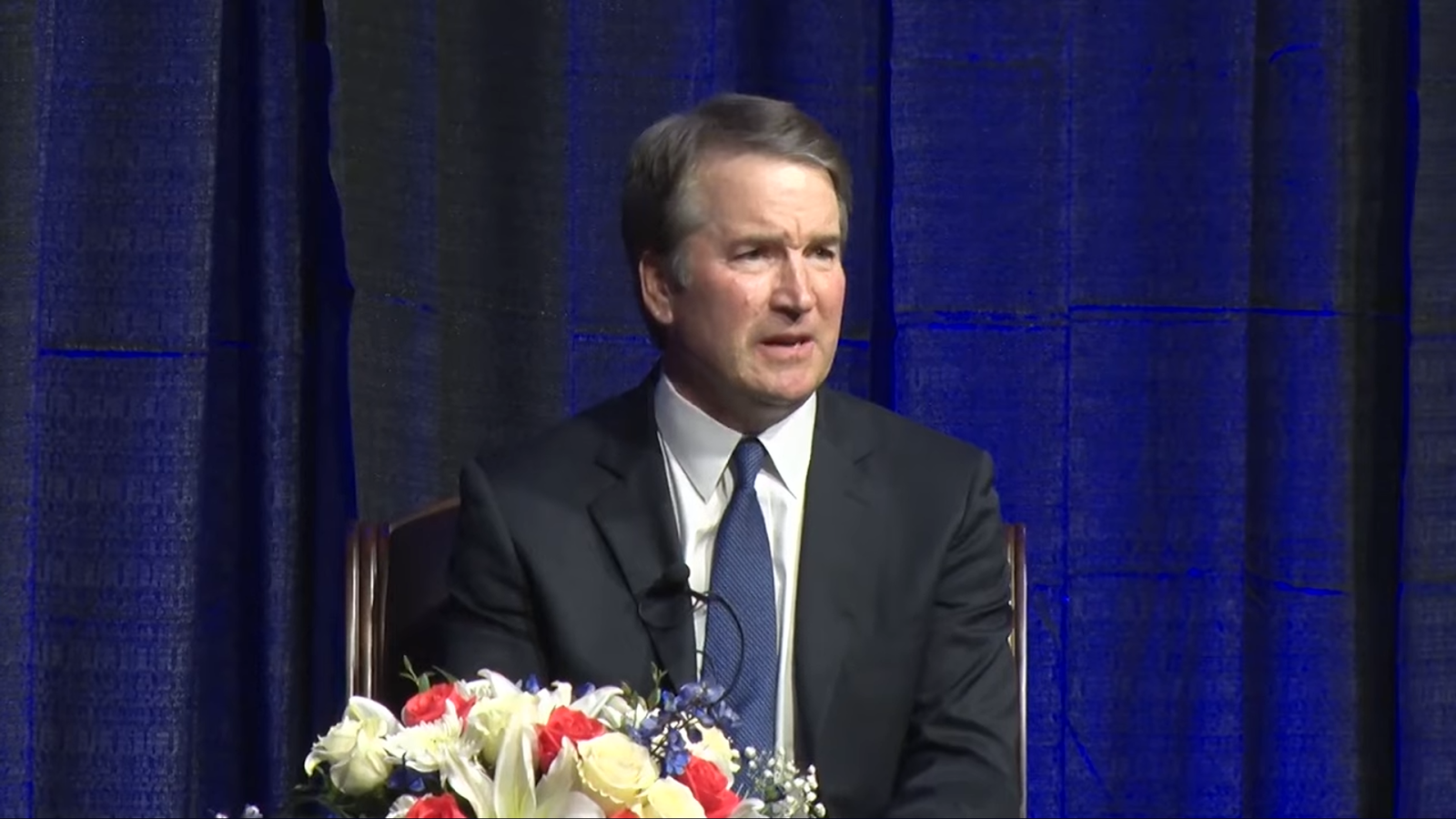Associate Justice Brett Kavanaugh criticized Illinois officials during Supreme Court oral arguments on Wednesday for inconsistencies in their legal arguments regarding candidate standing in election litigation.
Explainer Supreme Court Allows Transgender Student to Use Preferred Bathroom in South Carolina
The case, Bost v. Illinois State Board of Elections, involves a challenge by Rep. Mike Bost, R-Ill., and other Republicans against a state law that permits ballots to be counted up to two weeks after Election Day. The plaintiffs argue they were dismissed by lower courts due to a purported lack of standing and seek clarity from the Supreme Court on whether they have sufficient grounds to challenge state regulations affecting federal elections.
During the proceedings, Illinois Solicitor General Jane Notz faced scrutiny from Kavanaugh, who noted that her responses appeared to contradict earlier statements made to Chief Justice John Roberts. Kavanaugh remarked, "You’re walking away from a lot of your brief there ... you’re walking away from most of your brief with that answer, which, that’s your choice."
You’re walking away from a lot of your brief there ... you’re walking away from most of your brief with that answer, which, that’s your choice.
Justice Elena Kagan also pressed Notz on the standards federal candidates must meet to establish standing, emphasizing that candidates should not be required to demonstrate specific polling numbers or past election victories to bring a case. Kagan stated, "I agree with the chief justice. You do not want candidates to have to walk into federal court and show that ... they’re up in the polls by ‘X’ amount."
I agree with the chief justice. You do not want candidates to have to walk into federal court and show that ... they’re up in the polls by ‘X’ amount.
The legal debate centers on whether Bost and his co-plaintiffs have adequately demonstrated that they would be harmed by the Illinois law. Notz maintained that the burden of proof lies with the plaintiffs, asserting that standing is fact-specific and must be supported by the record.
Kavanaugh expressed concerns about the potential for "chaos of post-election litigation" if the court were to find the Illinois rule invalid without a clear standing issue. He posed a hypothetical scenario regarding the implications of a court ruling on ballot counting in a close election.
In response to Kavanaugh's inquiries, Notz argued that establishing standing is not inherently difficult but claimed Bost failed to provide sufficient evidence to support his case. She suggested that a candidate's experience could influence their standing, stating, "Experience is relevant" in determining how a candidate is affected by election rules.
Justice Samuel Alito challenged Notz's position, questioning whether a candidate's background should affect their standing. He asked, "Are you seriously arguing that whether or not the allegations here are sufficient requires an analysis of the particular background and experience of the candidate who files the complaint?" Notz's response seemed to affirm Alito's concerns, as she acknowledged that Bost's extensive experience could have provided him with valuable insights into the election process.
The Supreme Court's decision in this case could have significant implications for election law and the ability of candidates to challenge state regulations. As the justices deliberate, the outcome may influence how future election-related litigation is approached, particularly in states with similar laws regarding ballot counting.
The case highlights ongoing tensions between state election laws and federal oversight, as well as the complexities surrounding candidate standing in election disputes. The Supreme Court's ruling is expected to clarify the legal standards for standing in such cases, potentially reshaping the landscape of election litigation in the United States.
Why it matters
- Kavanaugh's critique of Illinois officials highlights inconsistencies in legal arguments, raising questions about candidate standing in election litigation.
- The case could redefine the standards for candidates challenging state election laws, impacting future election-related disputes.
- The Supreme Court's ruling may influence how states manage ballot counting and candidate eligibility in federal elections.
What’s next
- Awaiting the Supreme Court's decision, which could reshape election litigation standards.
- Legal experts will analyze implications for future cases involving state election regulations.
